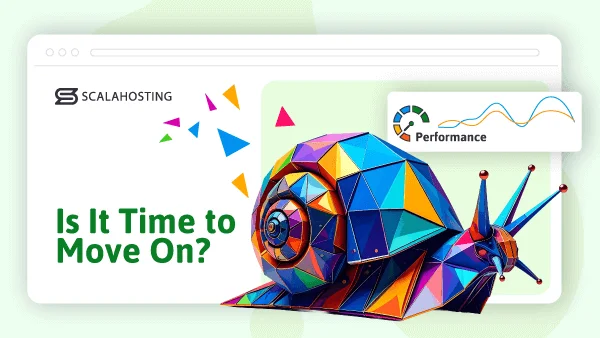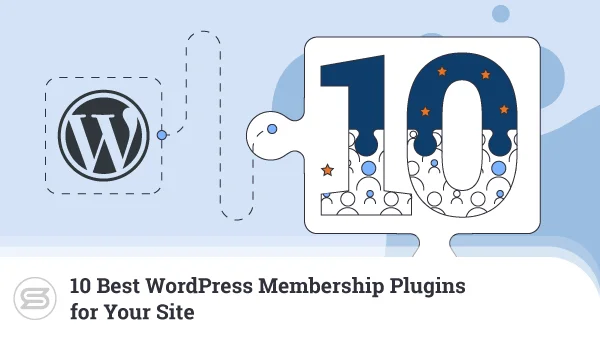WordPress has turned millions of inexperienced computer users into website administrators. Unfortunately, many of them think owning a site is something you can scratch off a to-do list and forget about. Thousands of projects are neglected for years on end, and the consequences of admins’ carelessness range from poor performance to real security risks.
Maintenance is a crucial part of owning a WordPress website. Today, we’ll show you what you need to pay close attention to and what could happen if you don’t.
What is WordPress?
WordPress is by far the most popular Content Management System (CMS) on the planet. It powers more than a third of the world’s websites, and we can attribute its popularity to three major advantages:
- it’s free
- it’s easy-to-use
- it’s versatile
Running a simple WP website won’t be a challenge even if you are a complete beginner, and there’s nothing to stop you if you have a bigger, more complex project in mind. The enormous WP community can answer all your questions, and thanks to its commitment, you get access to a vast range of themes and plugins.
Best of all, you can use WordPress as much as you want without paying a dime.
The net result, however, is that you often end up with a pretty complicated website. The WordPress core itself is a sophisticated framework, and when you add the extensions and themes on top of it – you may end up with an incredibly intricate system.
You need to take good care of it if you want it to run smoothly.
Why Is WordPress Maintenance So Important?
You could argue that launching the website is the easiest part of a typical WordPress project. More often than not, your hosting account is equipped with an auto-installer that sets up the CMS and gets you going in no time. Finding, customizing, and configuring all the right themes and plugins could take a while, but usually, there’s nothing too tricky about these tasks.
When the site is finally live, however, the challenges begin. Maximizing speed and uptime is essential for your project success, and you need to keep a constant eye on performance and security. If you don’t – the consequences could be quite devastating.
For example, a single security breach can ruin your site’s reputation and scare away most of your users, especially if hackers manage to compromise people’s personal data. And while the performance might not seem like the most crucial aspect of a website’s behavior, you shouldn’t underestimate its effects on user experience and search engine rankings.
WordPress Maintenance Tasks – Tips and Tricks
Staying on top of all this may sound a bit overwhelming, but if you know what to do, you should have no problems keeping your WordPress website in perfect working order. You just need a list of tasks to perform regularly and keep your project in optimal condition.
Check Your WordPress Passwords
If hackers guess your WP dashboard login details, they can easily take over your site. Breaching your web hosting control panel can also be used for spam campaigns and injecting malware.
The good news is, correct password management can make these attacks impossible. Your credentials should be complex but also unique. Reused passwords enable cybercriminals to hack into multiple different accounts with a single set of logins, and thousands of website owners suffer the consequences every day.
Many security specialists advise changing your passwords regularly, but you should bear in mind that this strategy only works if the passwords you choose are strong and have never been used before.
Ideally, you can utilize a password management tool to generate and memorize all your login details for you.
Updating the WordPress Core
The WordPress core consists of hundreds of thousands of lines of code, and it’s silly to think that such a complex system can exist without bugs or security vulnerabilities.
Although it’s been worked upon for close to twenty years now, people still regularly find ways of breaking WP’s security. Fortunately for the millions of site admins that use the CMS, a worldwide community of millions of developers and fans work tirelessly to fix all vulnerabilities before cybercriminals manage to exploit them.
That’s why you often see messages telling you that there’s a new WordPress version as soon as you log into the WP dashboard. In almost all cases, these updates contain patches for recently discovered security vulnerabilities.
If you don’t apply them as soon as they are released – you are effectively turning your site into a sitting duck.
Update Your Themes and Plugins
WordPress would be nowhere near as versatile if it weren’t for the wide range of themes and plugins. You can’t run a project without add-ons, but you have to take good care of them.
Effectively, each add-on piles more code, and the more code you have – the greater the chance of a security bug. It’s the same philosophy as with the WordPress core: if you don’t apply the updates, you don’t plug the security holes and run the risk of having your site hacked.
In the case of add-ons, updates often optimize the extension’s performance as well, so you have yet another incentive to install them as soon as they’re rolled out.
There is one thing you should bear in mind, though. Sometimes, add-on updates could cause conflicts between plugins, themes, and the WordPress core. If they’re not very well-written or tested, they can potentially break some of your site’s functionality or even cause downtime.
It’s a good idea to have a staging environment to test all plugin updates before pushing them to the live site. Should you see a problem – you can usually contact the add-on vendor and report the issue.
Audit Your Plugins
Admins make changes to their websites all the time. They add new themes, install new extensions, and do code modifications that don’t work out quite the way they expect. When reverting the changes, they often forget to remove the add-ons they no longer use, which could cause serious problems down the line.
In addition to the security risks, unused plugins can also present a performance setback.
For one, they take up room on your hosting account and increase the size of your backups. More importantly, if activated, they put an additional load on the server and slow your website down.
Make sure you go through all your installed plugins every now and again. Delete the ones you’re sure you won’t need in the future and deactivate the ones you’re not using at the moment.
Optimize Page Load Speeds
Numerous studies have discussed in detail how loading speeds affect bounce rates, and there’s little doubt in anyone’s mind that a slow loading page ruins the user experience.
Furthermore, performance plays a major role in a site’s search engine ranking. In other words, make your site faster, and you can have a significant edge over your direct competitors.
Numerous online tools like GTmetrix, Pingdom, and Google’s PageSpeed Insights, give you detailed reports on how your website is doing in terms of performance. Crucially, you get clear tips and tricks on what you can do to improve it.
If you haven’t done so already, you might want to consider putting the website through a Content Delivery Network (CDN), installing a caching plugin, and optimizing your site’s images.
It’s a good idea to re-test your website every now and again to see how it’s holding up. Best practices change with time, so you’ll also want to keep up with the latest trends.
Perform Regular Backups
No matter how many precautions you take, you need to be prepared for the worst. You have to ensure you have a recent working backup at any time, so you can have a plan B in case something goes wrong.
Decent hosting providers include a backup system in your hosting account, but if you’re going to rely on it, you need to ask where the backups are stored.
At ScalaHosting, we keep your backups on a remote offsite server, meaning you will still have access to them should something happens to the machine hosting your website.
As a “just in case” strategy, you might want to set up a backup system of your own. In addition to the scheduled backups, you can download secure copies of your site every time you apply updates or make significant changes. Fortunately, you can find numerous plugins that back up your WordPress website.
Check for Broken Links and 404 Pages
The more content you add to your site – the greater the chance of a link or button leading to the wrong resource. It might not seem like the biggest problem in the world, but from a user’s perspective, too many broken links and 404 pages could prove very annoying.
Worse still, broken links affect your SEO performance, which is a disadvantage you don’t want to put yourself into.
There are numerous ways of identifying broken links. For example, you can use a browser extension, but that would mean visiting every single page one by one. If your website is big enough, this simply is not an option.
Because broken links have such a significant impact on your site’s search engine rankings, SEO tools like SEMrush, Ahrefs, and Google’s Search Console are so valuable for every webmaster.
Quite a few WordPress plugins offer the same functionality as well.
Whichever approach you take, it’s best if you address the issue by removing, editing, or setting up a redirect for every single broken link.
Check and Remove Spam Comments
Many WordPress plugins promise to give you a reliable spam filter to reduce the number of unwanted comments that appear under your post. However, if your website attracts a lot of traffic, a spam comment is bound to slip through the cracks.
In much the same way, a legitimate opinion could be flagged as junk.
It might not be a bad idea to go through the pending comments regularly. Approve the legitimate ones and delete the spam. This cleans up your database and improves your site performance. You can put one more obstacle in the spammers’ way by blacklisting their IP from the Settings > Discussion section of your WP dashboard.
The effects might not be as dramatic as some of the other measures we’ve listed above, but when it comes to user experience, every little bit helps.
How Can Your Hosting Provider Help?
There’s no shortage of tasks you need to perform regularly if you are to keep your WordPress website in good working condition. People with less experience can do with some help, which is why they should be extra careful when picking their hosting provider.
Providing the right environment for your website shouldn’t be the only thing on your host’s priority list. Good hosts know that running a website is not a simple process, so they integrate tools and solutions that make users’ lives easier.
At ScalaHosting, for example, all our shared and managed VPS plans give you a free domain, a one-click WordPress installer, and 24/7 support from our team of experts who can help you out and point you to the correct resources in times of need.
As a WP user, you can choose from a selection of hosting plans specifically optimized for WordPress. You have a range of shared packages, ensuring enough room for your site to grow. If you decide to start with one of our managed VPS solutions – you’ll get even more speed and a much more reliable performance thanks to the guaranteed resources and dedicated IP.
In addition to the benefits of having your own virtual server, our managed VPS solutions give you the opportunity to use SPanel – ScalaHosting’s proprietary all-in-one management platform. With it, you’ll control everything related to your hosting account, plus dozens of useful tools and features.
Among them is SWordPress – another in-house built solution for managing WordPress installations. With it, you can enable auto-updates not just for the WP core but also for all the associated themes and plugins. You can also change the WordPress admin password or clone the installation to set up a test environment for new plugins and updates.
All this comes at a price only marginally higher than that of the shared solutions.


Conclusion
WordPress can be a brilliant launchpad for your website, but if you want to see your project grow and succeed – you need to take good care of it. Doing regular maintenance on your website boosts the user experience, makes your pages more secure, and improves their performance. It may not be the most fun part of having a website, but it’s undoubtedly one of the most important ones.
FAQ
How often should I perform maintenance tasks on my website?
It would be best if you create the schedule on your own. The more complex your site is – the more regular its maintenance must be.
For example, a WooCommerce store that processes payments requires more attention than a personal blog. Additionally, some tasks (like the check for updates, for example) must be performed more frequently than others.
How can regular maintenance help my website grow?
Regular maintenance helps improve your site’s user experience and security. These are the two main factors that drive traffic and ultimately decide your project’s success.
What could happen if I don’t perform regular maintenance on my website?
You can be pretty sure that users will know if you don’t maintain your site properly. They will see the deteriorated performance and will likely stop interacting with the website almost immediately. In a worst-case scenario, your lack of action could result in a security accident, which could spell the end of the entire project.


